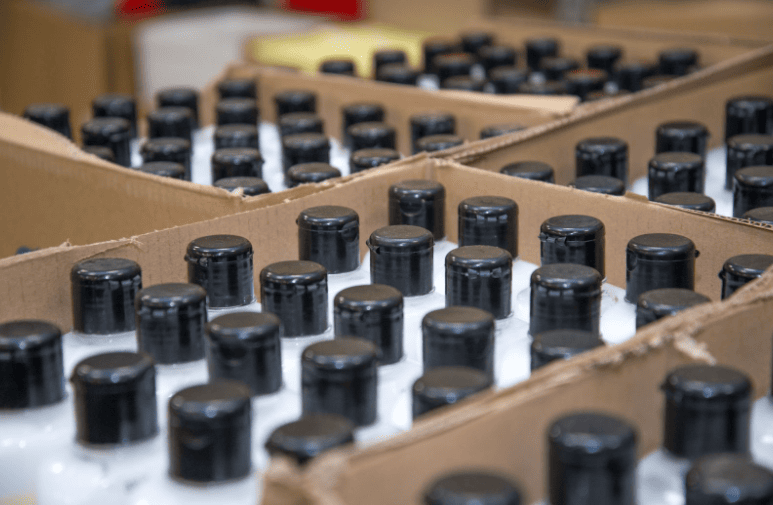Cosmetics Warehousing: What It Is, Importance, and Challenges

Cosmetics must be stored carefully and efficiently to keep them safe and cost-effective. But why is this important? And what challenges do cosmetic warehouses face? We’ll answer these questions in this blog post.
So if you want to know why cosmetics warehousing is important and what problems it faces, keep reading.
What is Cosmetics Warehousing?
Cosmetics warehousing is storing and managing beauty products, skincare items, and other cosmetics. This type of warehousing service requires specialized knowledge due to the unique requirements of this industry. In today’s competitive business climate, companies in the cosmetics industry need to have an efficient supply chain.
A dedicated warehouse for cosmetics provides a top manufacturer a competitive edge over rivals who lack one since it reduces costs by eliminating the need to outsource to third-party logistics providers. Additionally, it boosts efficiency through more accurate inventory tracking with fewer mistakes and faster fulfillment processes that increase customer satisfaction.
Why Cosmetics Warehousing Matters
Cosmetics warehousing is critical in the cosmetics business, enabling secure and effective storage and circulation of beauty items. Managing a warehouse properly can help reduce costs, improve efficiency and productivity, and increase customer satisfaction.
Here are some reasons cosmetics warehousing is important.
- Cost Savings: Cosmetics warehousing can help companies save money on transportation by organizing inventory efficiently. This can involve using third-party logistics providers or working with specialty retailers for expensive products like skincare or wellness items.
- Improved Efficiency And Productivity: A well-managed cosmetics warehouse has many benefits. One of them is that it helps streamline operations such as receiving goods, picking orders, packing items, and tracking inventory levels. This is done with warehouse management systems (WMS), which provide real-time visibility into stock levels. With accurate information, retailers can make better decisions about product availability.
Warehousing of cosmetics products is an essential part of any cosmetic enterprise, as it can bring about cost-efficiency, greater efficacy, and output and enhance customer satisfaction.
How Marketing affects Cosmetics Warehousing
Marketing can have a significant impact on cosmetics warehousing. Effective marketing can lead to increased demand for specific cosmetic products, which can result in the need for more storage space and more frequent restocking.
On the other hand, if marketing is ineffective or there is a backlash against a product, it can result in excess inventory and prolonged storage in the warehouse. Therefore, it is important for cosmetic companies to carefully monitor trends and conduct marketing forecasts to accurately determine the appropriate quantity of a cosmetic line for store shelves and prevent surplus and prolonged storage.
Cosmetics Shelf Life
Cosmetics expire too, and need proper storage and transport before their expiry date for best results. Consumers want good quality products and packaging that reflects the care taken by the company to minimize risks.
Storage Requirements For Cosmetics Warehousing
When storing cosmetics, consider space, temperature, and fragile containers to maintain quality. Some products need specific room temperature to prevent spoilage or melting, while fragile items require careful handling to avoid breakage.
By considering these factors, you can ensure that customers receive high-quality cosmetics.
Dealing with Returns and the Importance of Proper Packaging
Cosmetics returns happen a lot when products are not packaged or stored well. This can make them unusable and even harmful to health. When products are returned, it costs double or more to replace and transport them again.
To avoid these costs, it’s important to invest in proper packaging and storage.
What Challenges Does Cosmetics Warehousing Face?

Storing cosmetics is tough because warehouses may need more space to keep all the products, and there’s a need to make room for more as product demand ever grows. Cosmetics also require special storage because of their costly ingredients and packaging.
Here are a few common challenges in cosmetics warehousing;
- Automation and technology adoption: Cosmetics warehouses face a challenge with automation and technology. Automating tasks like managing inventory and checking quality is important for a smooth supply chain.
- Government regulations, safety protocols & security concerns: Storing cosmetics in warehouses can be challenging because of government rules and safety protocols and keeping valuable items safe from theft. To keep up with other beauty retailers, you need to store your products properly and follow all the rules.
Overcoming Cosmetic Warehousing Challenges
Cosmetics warehousing plays a vital role in the beauty industry. Effective storage and management of cosmetics keeps products safe and saves companies money. However, there are several challenges associated with cosmetics warehousing that need to be addressed for successful outcomes.
Inventory Management
One of the major challenges in cosmetics warehousing is managing inventory levels accurately while minimizing labor costs. This is where automation technologies come in handy. Automated systems can reduce errors and increase efficiency with minimal human intervention.
By using barcode scanning, robots, and other advanced technologies, warehouses and distribution can track inventory levels and product locations in real-time. This allows for faster and more accurate order fulfillment, improving customer satisfaction.
Improved Security
Another challenge in cosmetics warehousing is maintaining security measures to protect valuable products from theft or damage. Cosmetics can be expensive, and theft can lead to significant company losses. Installing CCTV cameras throughout the warehouse facility can help deter theft and vandalism.
You should also implement access control protocols to restrict access to sensitive warehouse areas. By ensuring that only authorized personnel have access to these areas, companies can minimize the risk of theft or damage to products.
Automated Management Systems
Companies can utilize Warehouse Management Systems (WMS) to optimize the warehousing process. WMS can provide real-time inventory level data, product location, and order fulfillment status for warehouse services. This helps companies identify areas for improvement and implement strategies for streamlining warehouse operations.
Storing cosmetics is crucial for many beauty brands and companies to save money and keep products safe. Challenges arise, but using technology like automation and security measures like CCTV cameras can help. Following rules for labeling and handling products is important for customer and staff safety.
Cosmetics Warehousing FAQs
Whether you’re a small business owner or a large corporation, these FAQs can provide you with the information you need to optimize your cosmetic warehousing operations and keep your products safe and secure.
What are the five main categories of cosmetic products?
The five main categories of cosmetic products are skincare, skin care haircare, makeup, fragrance, and personal care. Here’s a brief overview of each category:
Skincare
This category includes products such as cleansers, toners, moisturizers, serums, and sunscreens designed to improve the health and appearance of the skin. These products are formulated with various active ingredients that target specific skin concerns, such as acne, wrinkles, and hyperpigmentation.
Haircare
Haircare products are designed to cleanse, condition, and style hair. This category includes shampoos, conditioners, hair masks, and styling products like hairspray and gel. Haircare products can be formulated for different hair types and concerns, such as dryness, dandruff, and thinning hair.
Makeup
Makeup products enhance or alter the appearance of the face, eyes, lips, and nails. This category includes foundation, concealer, lipstick, eyeshadow, mascara, and nail polish products. Makeup can be used to create various looks, from natural to dramatic, and can be formulated for different skin types and tones.
Fragrance
Fragrance products are used to add scent to the body or living space. This category includes products such as perfumes, colognes, body sprays, and candles. Fragrance products can be formulated with a variety of natural and synthetic ingredients to create unique scents.
Personal Care
This category of consumer, includes products designed for personal hygiene and grooming. Examples of personal care products include soap, body wash, deodorant, and shaving cream. These products are formulated to cleanse and protect the body and can be tailored to specific skin types and concerns.
What type of waste are cosmetics?
Cosmetics can generate different types of waste, including packaging, expired or unused products, and chemical waste. Packaging waste includes plastic, paper, and glass used for product containers and shipping materials.
Expired or unused product waste can result from products that have passed their expiration dates or are no longer needed. Chemical waste can come from ingredients and formulas used in cosmetic products that may be hazardous to human health or the environment.
Proper disposal and management of cosmetics waste are important for environmental sustainability and public health.
Final Thoughts
In conclusion, cosmetics warehousing is an essential part of the beauty industry, requiring specialized knowledge and management due to the unique requirements of this industry. It provides cost savings, improves efficiency and productivity, and increases customer satisfaction. Effective marketing and monitoring of trends are critical to manage demand and prevent surplus and prolonged storage.
The storage requirements for cosmetics include space, temperature, and fragile containers to maintain quality. However, cosmetics warehousing faces several challenges such as automation and technology adoption, government regulations, safety protocols, and security concerns. Overcoming these challenges can be achieved through the use of automation technologies, implementing security measures like CCTV cameras, and utilizing Warehouse Management Systems (WMS) to optimize the warehousing process.
By addressing these challenges, cosmetics companies can ensure the safe and effective distribution channel, storage and circulation of beauty items and meet the demands of a competitive market.
